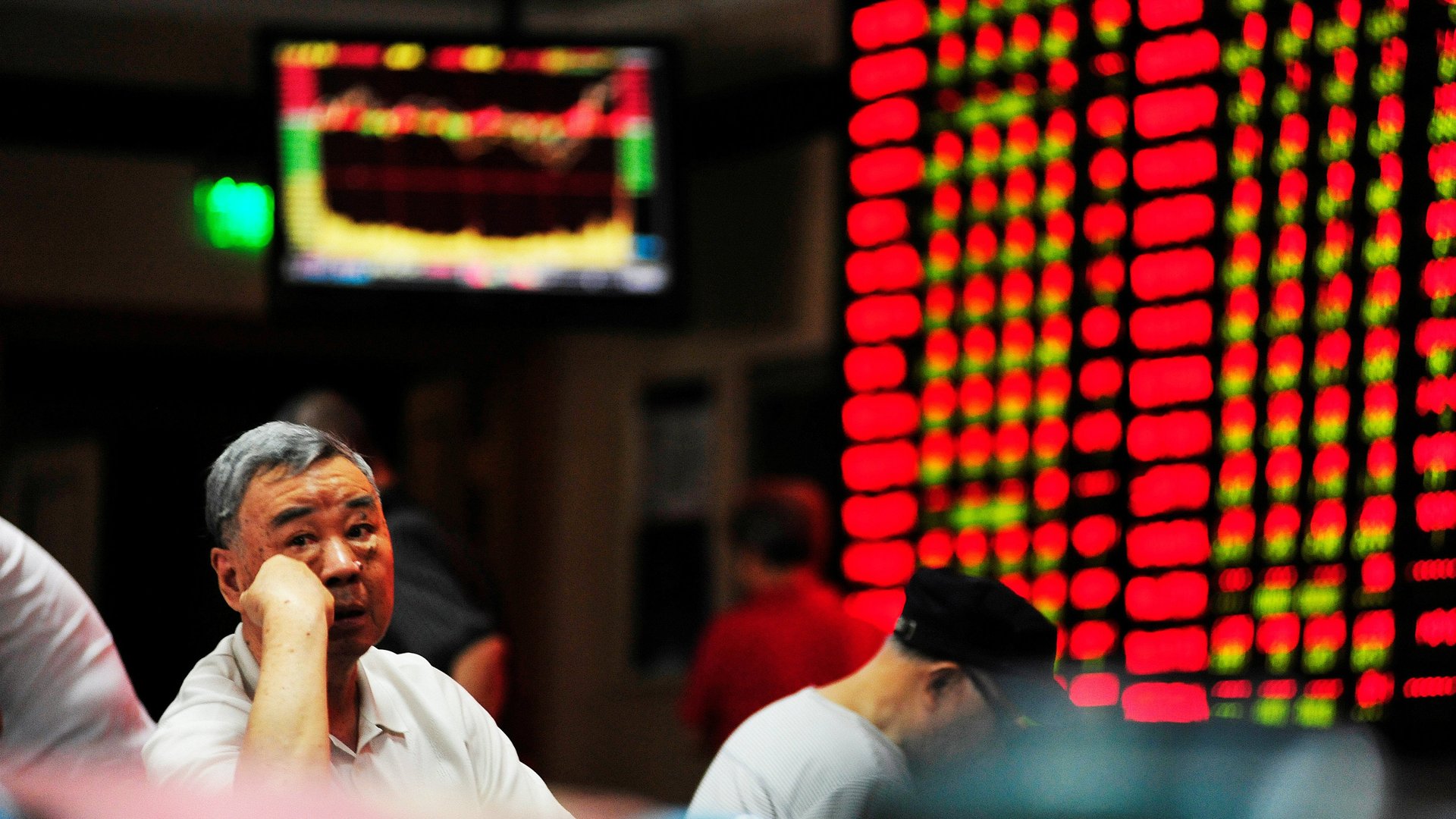Trump’s trade war hit Chinese stocks with their worst month in more than two years
Donald Trump’s escalating trade war has managed to hit at least one of its intended victims—China. The nation’s stocks just suffered their worst month of losses since January 2016, when a bout of turmoil triggered a global market rout.


Donald Trump’s escalating trade war has managed to hit at least one of its intended victims—China. The nation’s stocks just suffered their worst month of losses since January 2016, when a bout of turmoil triggered a global market rout.
This month, China’s main stock exchange dropped 8%. Earlier this week, it entered into the common definition of a bear market, falling by 20% from its peak earlier in the year. This was despite index company MSCI adding some 230 China-listed shares to its benchmark emerging markets index at the start of the month, which was expected to attract inflows into Chinese stocks.
Fears of global trade war, centered on a battle between the US and China, are mounting. Earlier this month, the Trump administration settled on a list of about 800 Chinese products to place tariffs on, amounting to about $50 billion, which begin to go into effect in July. China responded with its own list of US products targeted for tariffs worth $50 billion. Trump hit back by asking the US trade office to find another $200 billion worth of Chinese goods to tax at the border.
China’s economic growth is already slowing, and the impact of a trade war—or even the threat of one—is something the world’s second-largest economy doesn’t need. China is worried about corporate debt (pdf), market liquidity, tighter credit, and a weakening currency.
The government has recently taken measures to address these issues, but they haven’t yet convinced traders. For example, the central bank said it was cutting the amount of cash banks have to hold, unleashing $100 billion into the economy, and today the nation’s economic planning body increased the number of industrial sectors open to foreign ownership (paywall).
China’s stock market jumped a bit today, as traders closed out positions for the quarter, but with the next round of Trump’s tariffs, worth about $34 billion, set to bite next week it is unclear if the rebound will hold. The array of risks, and memories of the rout less than three years ago, is undermining China’s plans to attract foreign inflows into its economy and markets.